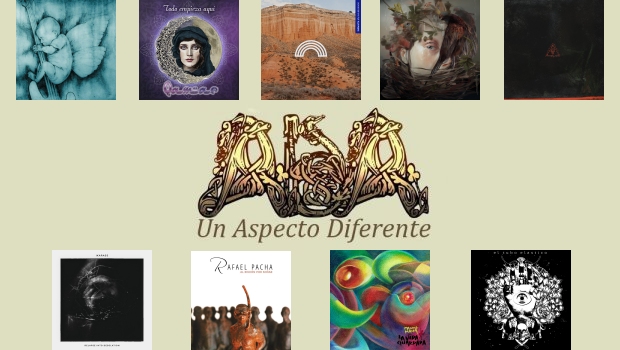In this update we have the second of a two part Spanish ADA Special featuring:
• Turdetans – Suite of Dreams
• Qamar – Todo Empieza Aquí
• Viva Belgrado – Bella Vista
• Jardin de la Croix – Letargo
• De la Cuna a la Tumba – La Tumba
• Ikarass – Relapse Into Desolation
• Rafael Pacha – Al Rincón por Soñar
• Manoel Macia – La Vida Guardada
• El Tubo Elástico – El Tubo Elástico En Directo
It’s not unusual for me to receive unsolicited recommendations off the back of one of my reviews, but I’ve never had quite the response I have from my recent Spanish edition of A Different Aspect. Enough, it seems, that I can write a second round up of progressive music from Spain! So, without further ado, here’s another nine albums from Spanish artists…
Nick Hudson

Turdetans may be Spanish, but they remind me most of Polish Band, Osada Vida (which is no bad thing, as I’m a great Osada Vida fan). Somewhat coincidentally, Osada Vida also released an album about sleep and dreaming. Like Osada Vida, the sound of Turdetans is rich, heavy and dense, playing a melancholic prog metal with atmospheric keyboard flourishes, and an almost jazzy lightness of touch that contrasts beautifully with the ominous and aggressive nature of much of the music. But, again like Osada Vida, Turdetans are just as adept at more mellow (dare I say dreamy?) passages, and flow beautifully from one to another. Flow is especially important for Turdetans, as the album is a continuous suite of music, with each piece segueing perfectly into the next. There are some particularly folky passages within the album, and not necessarily where you’d expect them either.
The first listening of this album is quite amazing, seemingly with a surprise around every corner. Subsequent listens lose a little of that wonder, but there are still plenty of flourishes that seem to have escaped notice the first time around. This is absolutely one of the most enjoyable, and easily one of my favourite, of the Spanish albums recommended to me in the last few weeks.
Nick Hudson

Well, I guess if I compared Turdetans to Osada Vida, then Qamar’s Polish equivalent might be Riverside. That, at least was my brief first impression, when the album began. However the sound very soon opens up, and reveals itself to be far more unique, and me to have been greatly mistaken. What really stands out for me, is the rhythm section. I love the prominent role the bass and drums play in Qamar’s music. And that’s not to take away from guitars and keys, which playfully spar with one another throughout. Then there’s all the added instrumentation. I’m always a sucker for sax, so when that hits I’m a happy bunny. There’s also some gorgeous flute, violin and Flamenco guitar. A lot of the time this sounds like a heavier, jazzier take on folk music.
I have no great knowledge of Andalusian folk music, so I could well be (and probably am) wrong. But I love the folky sound. The music is at times unmistakably and undeniably Spanish. My only complaint is the inclusion, or perhaps just the sequencing, of Éxodo, which is an enjoyable enough piece, but seems out of place. It’s quite jarring when it begins, somewhat ruining the mood I have settled into. Where Turdetan’s Suite of Dreams flowed beautifully, Éxodo kills Todo Empieza Aqui’s flow for me.
Nick Hudson
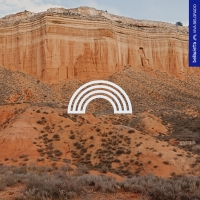
There’s no mistaking this for Andalusian folk. This sounds like At the Drive In might have done if they were a post-rock band. The music is almost wholly, but definitely not entirely, post-rock, while the vocals tend towards post-hardcore. It’s all post-something, anyway. I think. Maybe. I’ve never been good with genres, and anytime someone adds ‘post’ to an existing genre it merely further muddies the water. It’s jolly good stuff, though.
The band throw a complete curveball with fourth track Más Triste Que Shinji Ikari, which sounds NOTHING like what came before, and bizarrely seems to be the lead single. Anyone buying the album off the back of this song would potentially get a nasty surprise. So, just to be annoying, the video below is that song, which gives no indication at all of what the rest of the album sounds like. I didn’t like this song when I first heard it, but I think that was just down to the shock of how different it was, stylistically. Over subsequent listens, I’ve come to like it as much as the remainder of the album, but I still can’t really compare it (apples and oranges, and all that…). What surprises me most, is just how much I do enjoy this album. These sort of screamed and strained vocals are usually not my cup of tea at all, but they just work here.
Nick Hudson

After Viva Belgrado’s punky take on post-rock, Jardin de la Croix offer a far more traditional take on the genre. What really lifts Letargo, though, is the sumptuous and beautiful keys, which rise above the duelling guitars. Letargo is precise and technical, which can easily leave a band sounding lifeless and mechanical (and the reason so many post-rock bands do nothing for me). Too much math and not enough rock leaves me acknowledging the proficiency of the playing, but realising I am completely disinterested. Letargo, on the other hand, offers more than enough variety and vitality to not only maintain interest, but to create enthusiasm, and anticipation for the next big build. And rest assured, there are some suitably nifty crescendos and climaxes.
I definitely like what I hear on these two tracks, to want to go back and investigate the band’s previous releases. From what I understand, Letargo is the first of three EPs to be released for download and on (10”) vinyl over 2020 and 2021, with an eventual CD and LP release compiling all three. Definitely something to keep an eye (or, rather, ear) on…
Nick Hudson
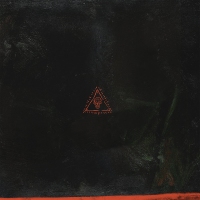
A return to a heavier post-rock sound, but while De la Cuna a la Tumba use post-hardcore as a tag on Bandcamp, there’s little there compared with Viva Belgrado – though that post-hardcore sound does come to the fore at times. The alternative metal tag is probably more indicative of their overall sound. There are many items when De la Cuna a la Tumbra remind me of ’90s alternative metal, such as For Love Not Lisa – except, transposed into a modern post-rock setting. Sometimes I could go even further back, as there’s a melodic and doomy aesthetic at times that is reminiscent of ’70s Black Sabbath. It’s a compelling mix, whatever the influences or inferred similarities.
I’ve said before that post-rock is a far more varied genre than many people suspect, and the three Spanish post-rock bands I’ve written about here, as well as those I wrote about in my first Spanish A Different Aspect article, really does go to show how far it is possible to stretch the genre, incorporating quite disparate styles into a post-rock framework. It’s not all doom and noise with De la Cuna a la Tumbra, and there are some particularly delicate and beautiful pieces. I absolutely love the fifth track, #pormuylejosqueintentemosir (all the tracks are written as hashtags), for example. These quieter pieces really give the following more boisterous tracks considerably more impact, than if they came one after another. A great album, well sequenced.
Nick Hudson
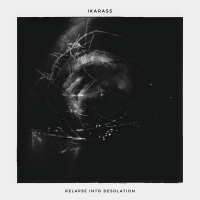
Ikarass are only just on the listenable side of my tolerance for harsh vocals. This is definitely post-metal as opposed to post-rock – and any hints of doom that De la Cuna a la Tumba may have, are thrown under the bus by the almost unrelenting and overt doom and sludge of Ikarass. Hecky thump, these boys are heavy. No doubt those who like heavier music than I, might laugh at that, but we all have our limits, and Ikarass is right at mine. That said, when the heaviness does relent at times, the quieter passages are really nice. And even some of the more crushing passages are still relatively pleasant (until the tortured vocals kick back in).
I’m pretty sure if Ikarass were an instrumental band, I might actually really enjoy them. I do like the music, but the vocals prove to be a bit of a stumbling block for me. The most accessible track, unsurprisingly I guess, appears to be the lead single for the album. You’ll know if this band is for you, or (like me) not, fairly quickly, I suspect…
Nick Hudson
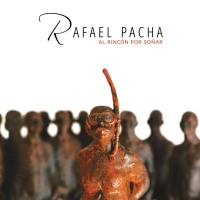
Oh yeah, this is definitely more my thing. An eclectic, slightly folky, slightly jazzy, slightly kooky rock, that reminds me a little of early Split Enz (Getting Older), for sure, gives me serious Phil Judd vibes. There’s an almost pop-like accessibility that is just perverse and subverted enough to keep the music close to, but not quite, within the mainstream. Like the Enz, Rafael Pacha seems to delight in putting contrasting pieces together. After the exuberant and explicit Getting Older, is the restrained and minimal La Línea de la Vida, which builds beautifully, like an Eddie Rayner instrumental. And if Getting Older was reminiscent of Phil Judd, then Books on the Schoolyard is classic Tim Finn.
Earlier Split Enz had a pastoral sound surprisingly similar to early Genesis, and Rafael Pacha has much the same feel, but the sound is notably more Mediterranean in sound (for example El Juego de las Diferencias and Friends, which follow after Books). The title track is definitely my favourite, but there’s a lot of goodness to choose from, for sure!
Nick Hudson
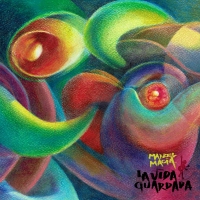
Manoel Macia is a guitarist who has worked with Rafael Pacha (I plan on checking out their Bandcamp to hear what they sound like together), and has put out an absolute belter of an acoustic album this year. La Vida Guardada is a perfect example of less being more. I had a listen to some of his previous albums, and La Vida Guardada knocks them out of the water. I’m usually more a fan of Steve Hackett-style guitar than Anthony Phillips – and this is definitely closer to the latter – so how much I enjoy this is a very pleasant surprise.
An album based solely on the acoustic wanderings and wonderings of a guitarist can easily fail due to a lack of variation, but there’s not a moment where my attention fades. The mood and style change not only between tracks, but sometimes within as well. This never feels or sounds like self-indulgence on the part of Macia. There is no redundancy or unneeded ornamentation. This is easily one of the most pleasant albums I’ve listened to during my Spanish odyssey. How progressive it is, is possibly subjective, but who cares when it’s this enjoyable?
(We could not locate a video for any track from the new album, so the above video is taken from a previous album.)
Nick Hudson
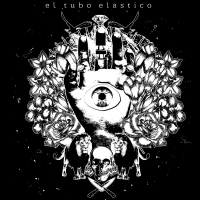
El Tubo Elástico’s debut provided me with one of the highlights of 2015, and their follow up in 2018 was undoubtedly one of the best releases of that year. I love the eclectic and somewhat difficult to define style of ETE. They have a definite post-rock feel, but I’m not sure too many would simply describe the band as post-rock. There is some jazz fusion in there, too, but they don’t really fit that bill either. Definitely some psychedelic and space rock moments. And sometimes the music borders on electronic and ambient. Regardless, they are an amazing band to listen to, and one I always imagined would absolutely blaze live.
With this 2020 release of a 2015 live performance of their debut album, my suspicions are confirmed. I found with the studio albums that sometimes I was not sure who is playing what, as there are multiple layers of guitars, and different members play the same instruments. Thus at times there is some amazing synth and guitar interplay, but I was never sure who is playing what. The band have released this entire gig on YouTube as well, so it’s now a lot easier to work out.
One big drawcard here is the opening track Impala, which the band explains was used as intro/improvisation for their concerts, before transforming, after many turns and trials, into Impala Formidable on their sophomore album. As with the studio recordings, my favourite thing at any given time, is the rhythm section of Carlos Cabrera and Alfonso Romero, who keep cohesion and focus in the album, and keep tightly in sync, while still managing to pull out some absolutely wild moments.

